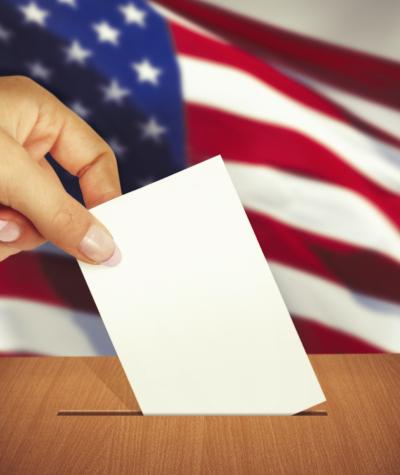The 2016 elections were dogged by questions about the integrity of our electoral system – from false claims that millions of people voted illegally – to legitimate concerns about the first election in fifty years without the protections of the Voting Rights Act. Also, there have been new worries about foreign actors interfering in our political process. During the primary season and in the general election, voters raised concerns about purged voter registration lists and long lines. In addition to the hacking of emails by Russian actors, there is also evidence that hackers attempted to penetrate state voter registration systems across the country. With plenty of challenges in election administration to address, why did a House Committee vote yesterday to eliminate the Elections Assistance Commission (EAC) – an agency tasked with evaluating and improving the efficiency and security of federal elections?
One of the EAC’s primary tasks is to assess and certify the integrity of electronic voting systems to ensure that they are functional, accessible, and secure. The Commission accredits independent laboratories to test voting systems, and provides voluntary guidelines to the states for assessing the health of their voting systems. It also tracks problems with election systems, and creates accountability by providing public access to its reports and collecting and publishing data about election administration across the country. At a time when the public could use reassurance about the integrity of our elections, defunding the only federal agency devoted to secure election administration defies rational explanation. In a display of willful blindness to the public’s concerns, the sponsor of the bill to eliminate the EAC says he believes the agency has “outlived its usefulness and purpose.”
In addition to its critical role in election security, the EAC also functions as a valuable clearinghouse of information for states, elections officials, Congress, and the public on election administration, voter registration, and voting. Every two years the EAC publishes the results of its Election Administration and Voting Survey and reports on the data collected to Congress. These reports, and the data on which they rely, provide critical insights to how states maintain their voter registration rolls, including tracking duplicate, invalid, and rejected registrations, and the notice given to applicants and registered voters of pending removal or other changes to their voter registration status. The reports provide data on how states transmit, receive, and count the ballots of overseas voters, including members of the military. Finally, the reports provide data related to Election Day practices and activities in the states, including turnout, precincts and polling places, early voting, and the use of provisional ballots.
Voting and democracy experts are concerned about the likelihood that federal and state legislators will continue to use the “voter fraud” myth to justify further efforts to make it more difficult for Americans to vote. We face an administration obsessed with the nonexistent threat of widespread voter fraud, and an Attorney General nominee with a proven hostility to voting rights. Congress must be a check on this Administration’s attack on the integrity of our elections. Abolishing the EAC is a step backwards. The loss of vital information the EAC collects could allow Congress to quietly make it more difficult to track the impact of voter suppression laws while undercutting efforts to improve the security and reliability of our election technology.
